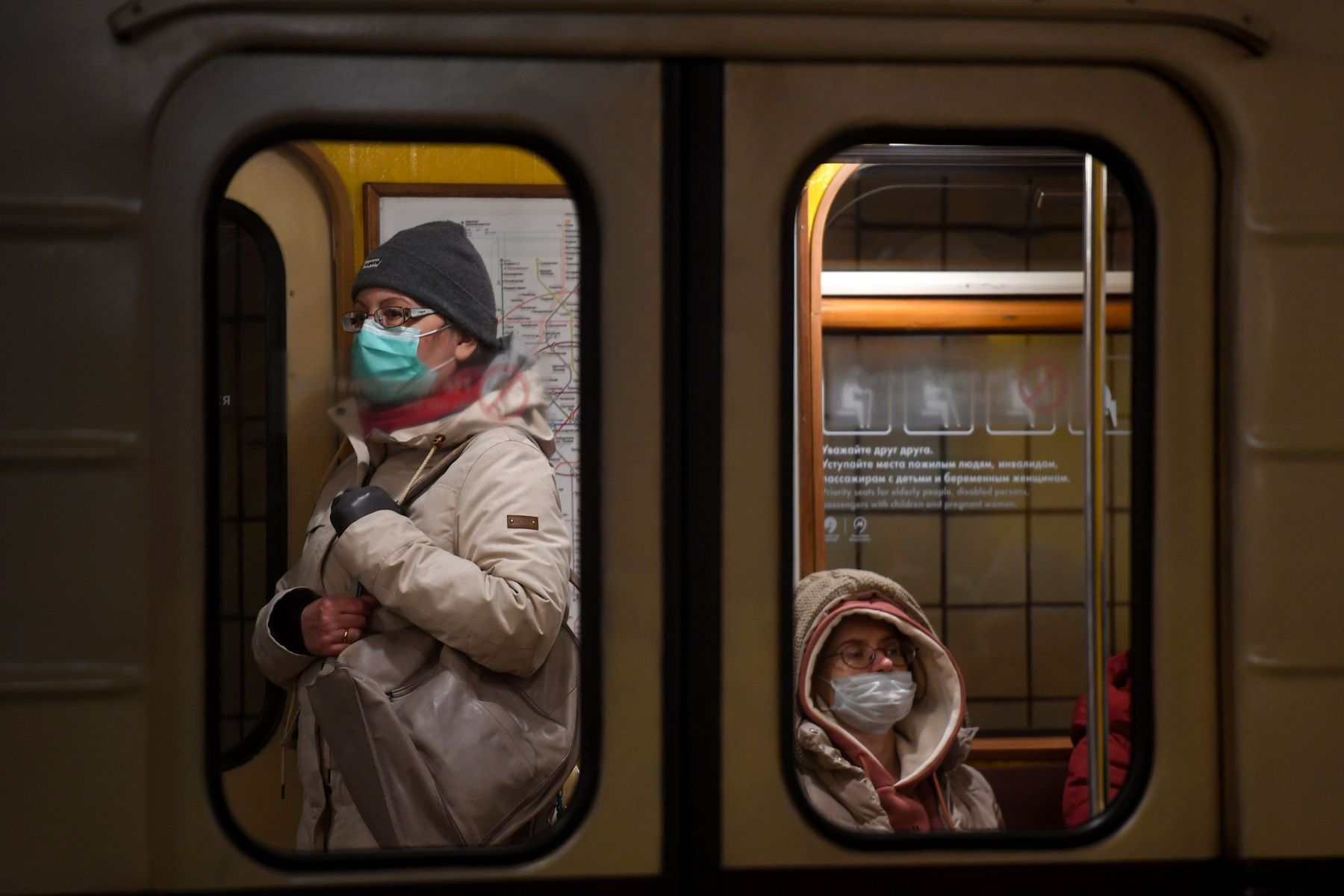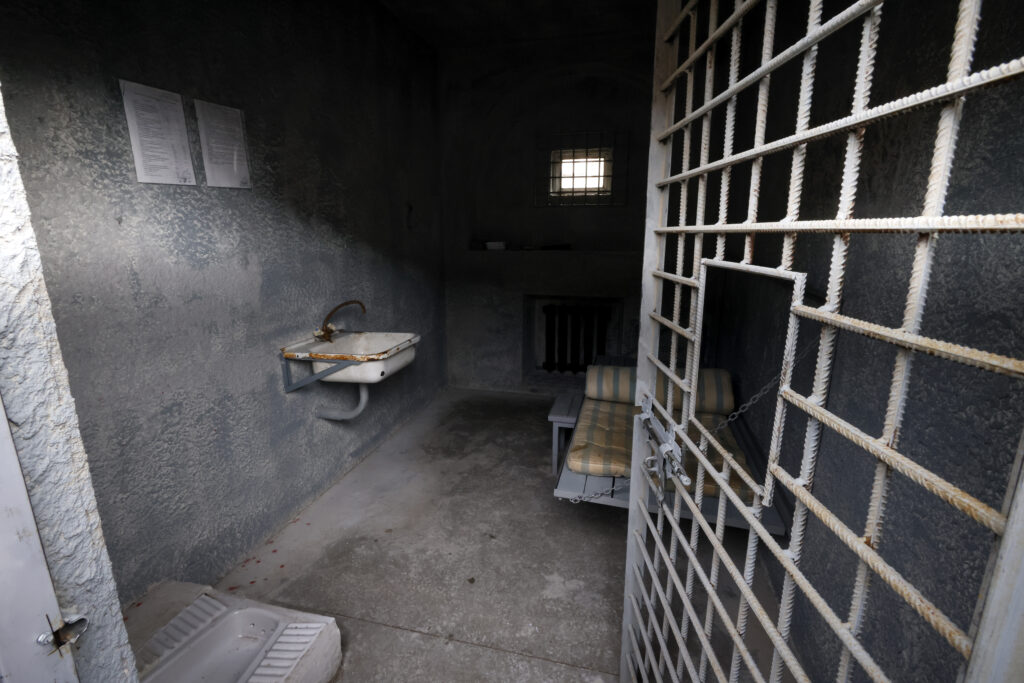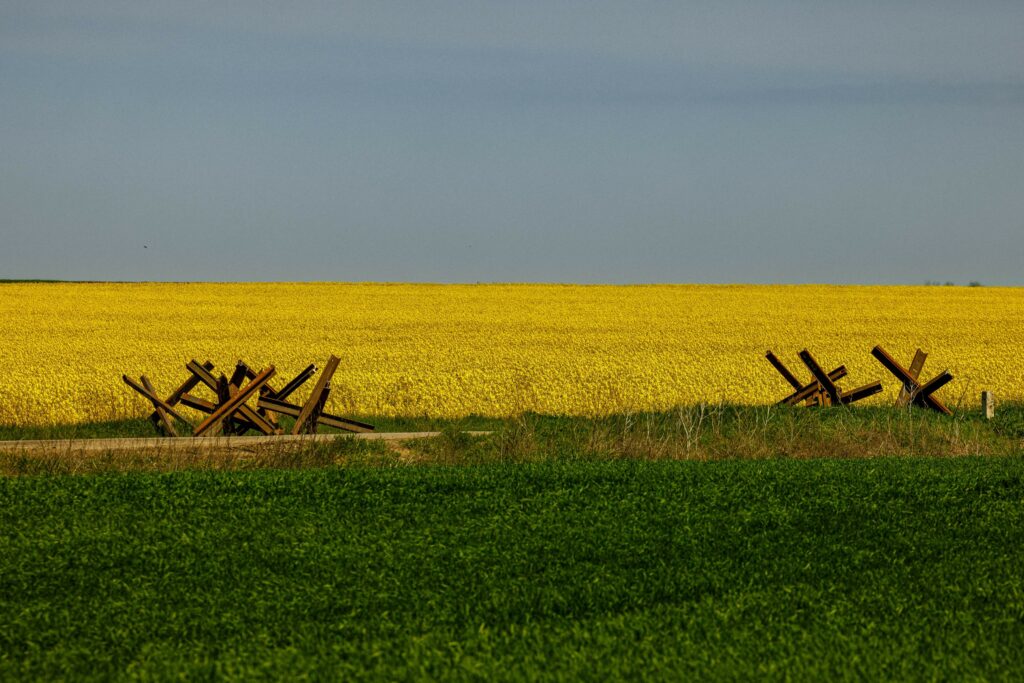Though the pandemic still goes on, there are already clear indicators of how public opinion has shifted in Russia due to Covid-19. Of course, there is no guarantee these shifts will persist; opinion polls can be volatile. However, the findings do give us at least some guidance. What are the fundamental changes? Did the Russian public react like the rest of the world? To a large extent it did, but in a recent survey, one striking point was the prevalence of theories denying the existence of Covid-19 — a higher rate of Covid-19 denial than in all other countries surveyed.
The price of human life
The reality is that Russia ranks fourth in the world for COVID-19 infections. The European University in St. Petersburg research group estimated that the proportion of people who were infected in St. Petersburg and the Leningrad Region reached 30% by December 2020 — far exceeding official statistics for the region. The mortality rate among medical personnel in Russia is higher than in other countries. At the same time, the official media and the authorities prefer not to wash their dirty linen in public. There have been attempts to suppress information on the real situation in healthcare institutions. The law which penalises disseminating incorrect information about COVID-19 became actively used against collective and individual attempts by the professional community to raise awareness.
Still, Russians took a relatively calm stance when faced with the pandemic. According to the Values in Crisis survey, launched under the auspices of the international World Values Survey project, 13.7% of Russia’s residents had experienced the disease by mid-summer, either personally or through family members (Figure 1). The autumn wave increased this percentage significantly. In Sweden, 54.7% of those surveyed were exposed to coronavirus by mid-summer, with 27.6% in Brazil. (Data on individual exposure to coronavirus — symptoms experienced by the respondents or their loved ones — reflect the rate of virus spread in individual countries and differences in reporting and record-taking systems.)
Figure 1. Exposure to COVID-19

Among the countries covered by the first wave of the Values in Crisis panel survey, Russia ranks third (after Brazil and South Korea) for anxiety about the possible economic consequences of the pandemic (Figure 2). Moreover, the proportion of Russian respondents experiencing negative consequences of the pandemic (losing their job or business, moving to a part-time job or living on welfare) is about the same as in most countries in our sample, i.e. 23.8% (Figure 3).
Figure 2. Average levels of anxiety about the economic situation

Figure 3. Negative economic impact in 2020

Russians tend to believe that the economic costs of the pandemic are more significant than any others. This position is shared by the government, which tries to ‘survive through’ the pandemic without any strict lockdown measures, knowing that responsibility for external shocks can be shifted to the regions, medical professionals or citizens themselves.
Solidarity in the face of a common threat?
Not all countries experienced increased public solidarity in the face of the pandemic. We observed the ‘rally-around-the-flag’ effect in South Korea and most EU countries. However, neither the USA nor Russia showed any signs of this phenomenon.
Public trust and social capital are known to be conducive to business and investments as well as the quality of governance and political openness. Like most countries with a communist past (or, more generally, authoritarian experience), Russia has systematically demonstrated low levels of institutional and depersonalised trust (people in Russia trust friends and acquaintances; strangers are much more likely to be perceived as a source of trouble). In societies with low levels of depersonalised trust, voluntary compliance with lockdown measures and social distancing can become problematic: people may either be aggressive towards those who violate the restrictions or they might ignore precautionary measures en masse since no one complies with them anyway. The introduction of external control measures by law enforcement authorities, as was the case in China or in Moscow in the spring of 2020, is also likely to trigger growing social discontent.
In the Values in Crisis survey, we asked the respondents how well their fellow citizens behaved during the coronavirus crisis and whether they experienced more solidarity or more hostility than usual (Figure 4). Russians were among the nations showing the highest criticism about their fellow citizens: 40.5% of the surveyed Russians felt that the majority of their fellow citizens were behaving improperly. The respective figure for Greece was 22.5%, with 20.7% for Sweden and 16.2% for Georgia. This difference can be explained by how, in a situation of low public trust, it is easier for the government to shed the blame for ineffective policies in controlling the hotbeds of the epidemic. It is easy to put the blame onto certain groups, such as workers in kebab shops, tourists, migrants, etc. Remarkably, the greatest degree of negativity about the behaviour of fellow citizens was observed in Brazil (75.1%), a country with a president who refuses to recognise the danger of the coronavirus.
Figure 4. Assessment of fellow citizens’ behaviour during the pandemic

Russia – a country of COVID deniers, egoists or simply tired people?
Conspiracy theories develop as a response or compensatory mechanism in societies with low levels of trust and high levels of uncertainty. COVID denialism can be seen as part of a more general phenomenon of medical denialism — a set of theories and practices of denying the authority of medical science.
It is key to remember that Russians primarily blame their fellow citizens for irresponsible behaviour during the pandemic. At the same time, Russia shows the lowest average level of trust in the health care system among the ten analysed countries: 2.1 points on a scale from 1 to 5 (the highest level is observed in Sweden: 4.4). Denial of medical expertise is associated with problems in national health systems and their low efficiency. Conspiracy narratives thrive on the soil of inefficiency and distrust.
On the whole, however, Russia is not an outlier compared to other countries. It stands out significantly only with one parameter: a high proportion of citizens who believe the coronavirus is a hoax (38%). A comparable number of COVID deniers is observed only in Georgia: 36.3% (Figure 5).
Presumably, this stems from the communist legacy associated with routine distrust of the mass media, or the popularity of ‘word of mouth’ and other informal sources of information. It is these sources that represent the key channel for the spread of urban legends and conspiracy theories. This claim is indirectly confirmed by how Russian respondents demonstrate the lowest level of trust in traditional media (television and the press), giving preference to social media and the Internet (the highest levels of trust in traditional media among the ten analysed countries were found for Sweden, Germany and Austria). The habit of not trusting official information and looking for a hidden agenda, trying to ‘read between the lines’ had developed for more than just one generation. Meanwhile, the Internet offers enormous opportunities for selective consumption of information highly compatible with an individual’s own lifestyle and beliefs (the ‘echo chamber effect’).
Figure 5. Share of COVID deniers

Scepticism about the coronavirus, along with alarmism, currently determines and will most likely determine the dynamics of political support for the executive branch in the Russian Federation. However, COVID sceptics are highly heterogeneous; we can hardly just label them as conspiracy theorists, nationalists, conservatives or individuals who deny scientific knowledge en masse. Instead, we are probably talking about a daily pragmatism of atomised citizens, living day by day.
The year 2020 did not add much solidarity and trust to Russian society. In the absence of reliable official information about policies and the pandemic, Russians were forced to resort to alternative sources for information. Judging by our data, COVID denial in Russia is by no means a sign of collective lunacy or mass anti-science movement, but a rationalisation of the lifestyle that seems most comfortable here and now. In their education, COVID deniers do not differ from the rest of the country’s population. One possible reason behind the unusually high popularity of conspiracy theories may be linked to the short planning horizon. High levels of economic and medical uncertainty inevitably undermine the predictability of everyday life in any country. In Russia, the level of uncertainty is somewhat higher, which is why many citizens living in an information vacuum need at least some explanatory ‘mental crutches’ to make sense of the world around them.










